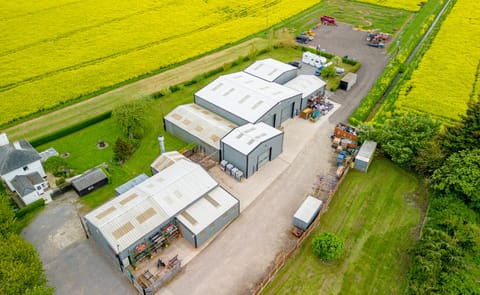From left: Dr. Jason Matthews, Dr. Ben Hicks and Professor Glen Mullineux with one of their packaging machines.
University of Bath research will seal the future of green packaging

Researchers at the University of Bath and the food &drinks research centre at Campden BRI are leading a project to create a new high speed environmentally-friendly packaging process that will use recycled materials and reduce the amount of plastic used, cutting the waste that goes into landfill.
The half a million pound project is focused on improving the ‘form-fill and seal’ type of packaging used for foods such as rice, pasta and crisps. By designing a more efficient way of sealing the packaging, the researchers hope to reduce the amount of material used by 13%, which would lead to a saving of more than 39,000 tonnes per year of landfill waste.
Dr Ben Hicks, Professor Glen Mullineux, and Dr Jason Matthews from the University’s Department of Mechanical Engineering are working as part of a consortium including Campden BRI, HayssenSandiacre Europe, Amcor Flexibles Food and United Biscuits on the two-year project that is funded by the Department for Environment, Food and Rural Affairs (DEFRA).
They will examine the process used to mechanically fill and seal the packaging and then use this information to design a new packing machine that uses less plastic and can use recycled materials.
“The project brings together a diverse mix of industrial and academic research partners, combining both theoretical and practical studies to tackle this challenge."
“The scientific knowledge base is further enhanced by the materials processing knowledge of Amcor, the practical experience of consumer goods packaging from United Biscuits and the machinery design knowledge of HayssenSandiacre.”










